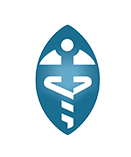Your Critical Role in Suicide Prevention Month
By The Rev. Dr. Ebony D. Only
 As we approach September, National Suicide Prevention Month, our role as spiritual and emotional support providers becomes even more crucial. This article aims to provide you with ideas, resources, and important statistics to enhance your suicide prevention efforts within your communities and healthcare settings.
As we approach September, National Suicide Prevention Month, our role as spiritual and emotional support providers becomes even more crucial. This article aims to provide you with ideas, resources, and important statistics to enhance your suicide prevention efforts within your communities and healthcare settings.
Understanding the Importance
Suicide remains a significant public health concern, affecting individuals across all demographics. Recent statistics highlight the urgent need for our intervention:
Youth and Teens:
- Suicide is the second leading cause of death for people aged 10-14 and 25-34.
- In 2021, 22% of high school students seriously considered attempting suicide.
- LGBTQ+ youth are more than four times as likely to attempt suicide compared to their peers.
- With rates nearly doubling between 1993 and 2012, suicide is now the third leading cause of death among African American youth (Bridge et al., 2015; CDC, 2014).
Marginalized Groups:
- American Indian/Alaska Native people have the highest suicide rates in the U.S.
- LGBTQ+ adults are more than twice as likely to report a suicide attempt compared to heterosexual adults.
- Veterans are 1.5 times more likely to die by suicide than non-veteran adults.
As chaplains, we are uniquely positioned to offer hope, support, and connection to those struggling with suicidal thoughts or affected by suicide, especially among these vulnerable populations.
Activities for Suicide Prevention Month
- Targeted Awareness Workshops: Organize workshops in your hospital, church, synagogue, worship or community center to educate staff and community members about suicide warning signs and intervention strategies, with a focus on high-risk groups like youth and marginalized populations.
- Memorial Services: Host remembrance services for those lost to suicide, providing a space for healing and community support. Consider holding specific events for youth or marginalized communities.
- Resource Fairs: Coordinate with local mental health organizations to set up resource fairs, connecting individuals with available support services, including those specializing in youth and LGBTQ+ mental health.
- Support Groups: Initiate or facilitate support groups for individuals affected by suicide or experiencing suicidal thoughts, including specialized groups for teens, LGBTQ+ individuals, or veterans.
- Mindfulness and Meditation Sessions: Offer sessions focusing on mental health, stress reduction, and finding meaning in life, tailored to different age groups and cultural backgrounds.
Providing Support
- Active Listening: Enhance your active listening skills to provide a non-judgmental space for individuals to express their feelings, being particularly attentive to the unique challenges faced by youth and marginalized groups.
- Cultural Competence: Develop cultural competence to better serve diverse populations, recognizing that cultural factors can significantly impact mental health and help-seeking behaviors.
- Collaborative Care: Strengthen partnerships with mental health professionals, especially those specializing in youth mental health or working with marginalized communities, to ensure comprehensive care for at-risk individuals.
- Self-Care Promotion: Encourage and model self-care practices, recognizing that caring for ourselves enables us to better care for others. Tailor self-care advice to different age groups and cultural contexts.
- Follow-Up Care: Implement a system for following up with individuals who have expressed suicidal thoughts or attempted suicide, paying special attention to young people and those from high-risk groups.
Resources
National Suicide Prevention Lifeline: 1-800-273-8255
Crisis Text Line: Text HOME to 741741
The Trevor Project (LGBTQ+ youth): 1-866-488-7386 or text START to 678678
Veterans Crisis Line: 1-800-273-8255 and Press 1
[American Association of Suicidology](https://suicidology.org/)
[Suicide Prevention Resource Center](https://www.sprc.org/)
[The Jed Foundation](https://jedfoundation.org/) (for teens and young adults)
Click here for a Chicagoland-area resource list
Remember, your presence and support can make a significant difference in someone’s life, especially for those who may feel marginalized or overlooked. By working together and focusing on vulnerable populations, we can create a community of hope and healing for all.
Thank you for your dedication to this vital work.




Leave A Comment